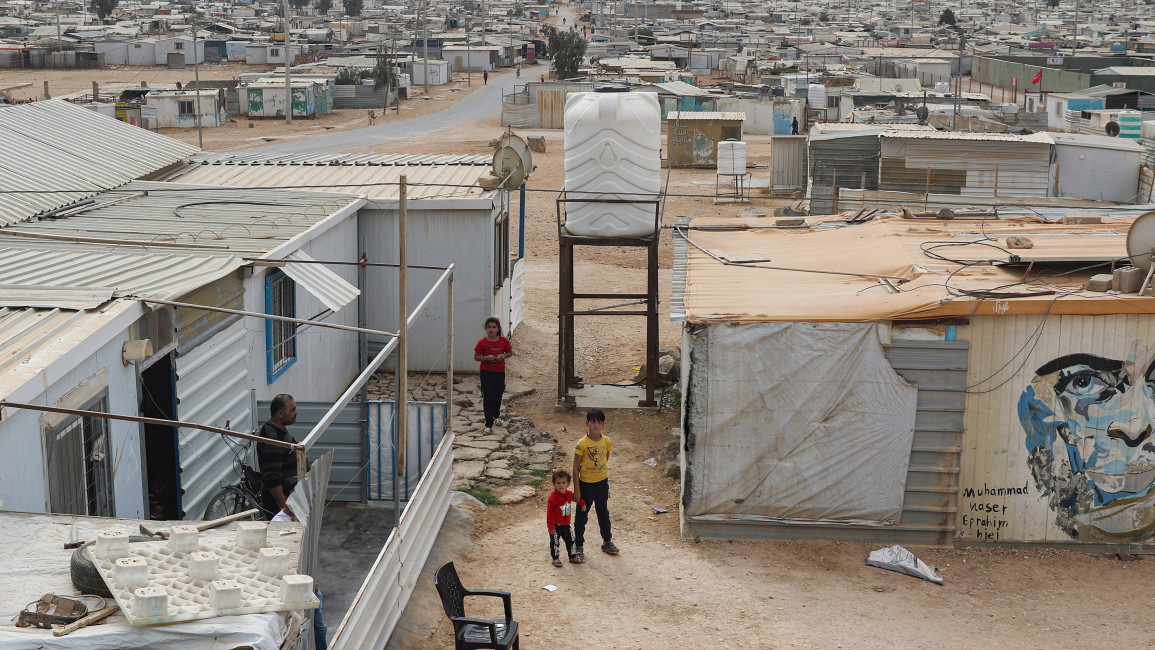In Jordan, 12,000 refugee families did not receive monthly benefits in July, according to reports.
The families – who are eligible for the benefits – did not receive them due to limited funding and have been put on a waiting list, Jordanian state media outlet Al Mamlaka TV quoted the UN’s refugee agency UNHCR as saying.
Jordan hosts over 750,000 refugees and asylum seekers registered by the UNHCR – from Iraq, Yemen, Sudan, Somalia and other countries – including 660,000 from Syria.
This makes Jordan one of the countries with the highest refugee population per capita and places “enormous pressure” on the kingdom “and its host communities,” the UNHCR says.
The United Nations commission provides monthly cash assistance to the neediest families in the kingdom, depending on the funding available, UNHCR spokesperson in Meshal al-Fayez told Al Mamlaka TV.
They provide benefits to refugees of varying nationalities and decide how much is allocated to each by considering numerous factors, including the number of family members and disabilities present.
“There is no specific monetary value set for everyone, the value of the monthly cash assistance varies from one family to another based on the number of family members and their nationality,” Fayez said
Earlier this year, Jordan encouraged the voluntary return of Syrian refugees to their home country, despite human rights groups insisting that Syria remains one of the most dangerous places on earth.
Syrian refugees left Syria to flee the Assad regime’s fierce attacks on opposition towns and cities and many of those who left for Jordan, have suffered from discrimination.
Read Also: Where Will Syrians Flee After Roads to European Dream Closed
About half of Syria’s population has been displaced due to Syria’s decade-long civil war. As many as 6.8 million Syrians live as refugees outside the country, and the rest are internally displaced.
Over 90 percent of displaced people in Northern Syria’s camps are concerned about access to water amid a scorching summer, according to a survey released Thursday by the Syrian Response Coordination Group.
When highlighting their needs, 92 percent of displaced persons (IDPs) surveyed stated a need for “securing water subsidies inside the camps and increasing their quantities during the summer”.
In addition, 79 percent of IDPs were concerned about the prevalence of skin diseases in the camps as a result of “the severe lack of water security.”
Over 590 camps out of 1,489 in the northwest suffer from a complete lack of water supply, with an additional 269 camps not receiving sufficient quantities of water, according to the response group.
The humanitarian response group surveyed over 30,000 IDPs to highlight their basic needs amid rising temperatures – which have reached 44 degrees Celsius as the heat is expected to continue, according to Syria TV.
The struggle of IDPs – who are already living under challenging conditions amid an alarming shortage of basic needs and humanitarian aid – is exacerbated by the lack of water resources, as the vast majority of them depend mainly on humanitarian aid for survival.
“We urgently call on humanitarian organizations to take their responsibility towards the displaced in the camps in northwestern Syria, which is inhabited by more than a million and a half civilians, in the face of [rising] temperatures,” the Syrian Response Coordination Group said earlier this month.
This article was edited by The Syrian Observer. The Syrian Observer has not verified the content of this story. Responsibility for the information and views set out in this article lies entirely with the author.


